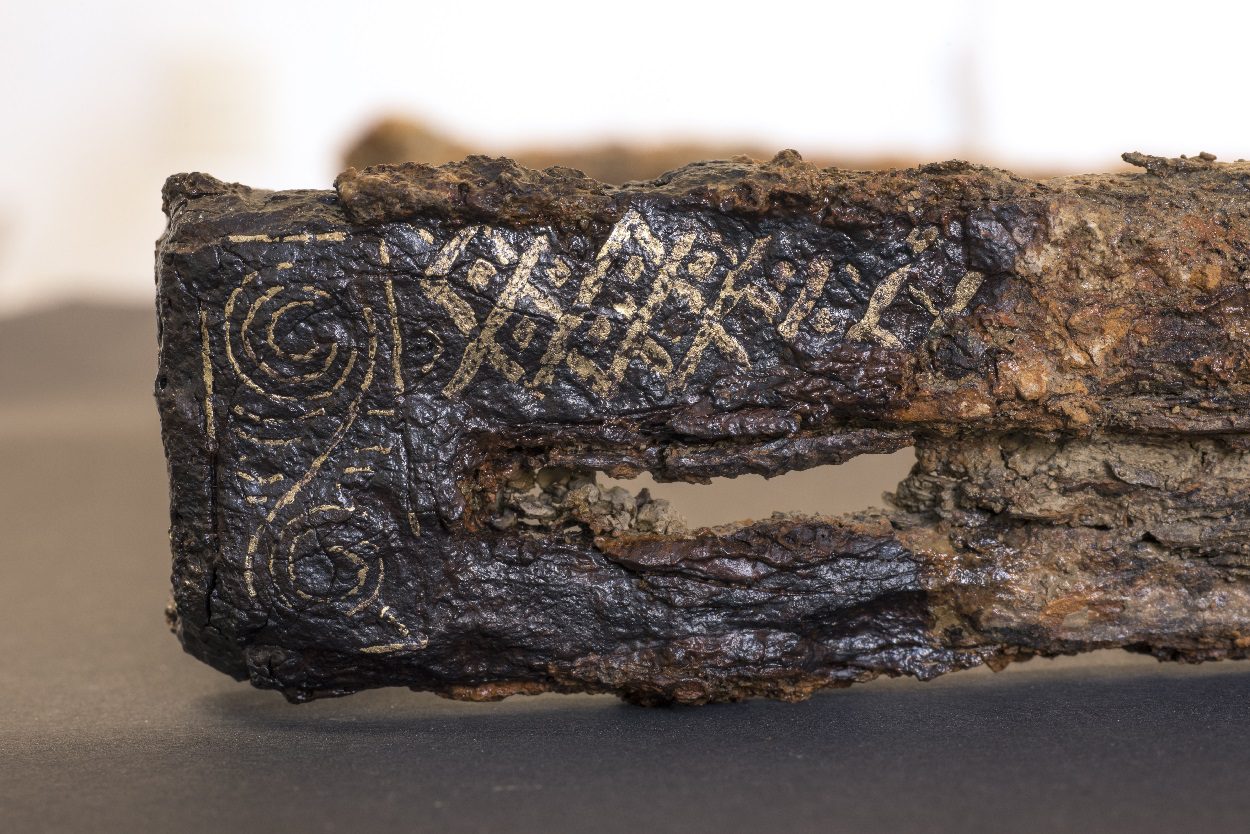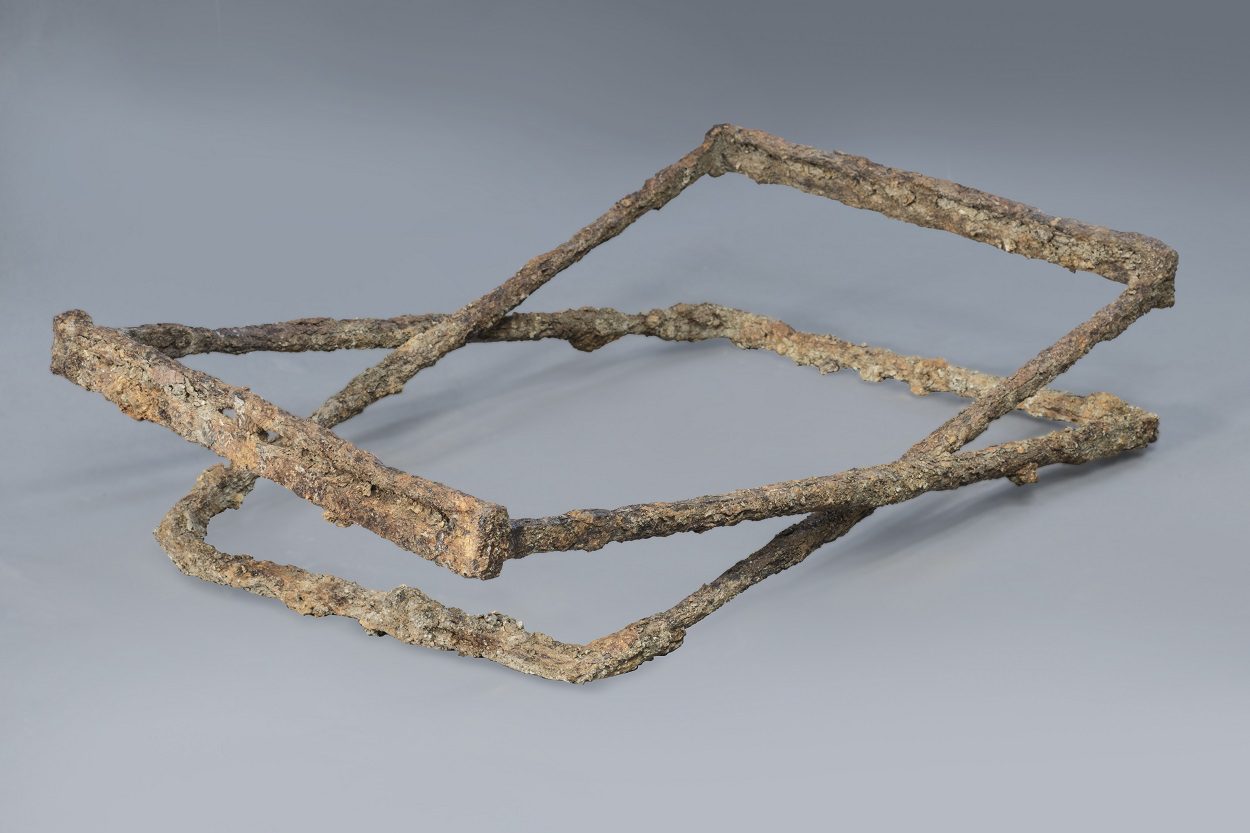Archaeologists have uncovered a “folding chair” from the 7th century AD during excavations in the village of Endsee, located in Middle Franconia, Germany.
The chair was first discovered in 2022, deposited as a funerary offering in a burial from the early medieval period. The grave contained the remains of a woman aged 40-50-years-old, along with a necklace made of small multi-coloured glass beads, two brooches, an almandine disc brooch, a large millefiori bead, and a whorl.
In addition to the woman’s grave, the archaeologists also uncovered a man’s grave containing richly decorated weapons (lance, shield, spathe). According to the researchers, the graves are probably related to the Franconian influence of the Main and Tauber regions in the 6th and 7th centuries.
Now unveiled to the public at the “Archaeology in Bavaria” conference following a lengthy restoration process, the chair consists of two frames connected with an axle pin and is decorated with brass non-ferrous metal inlays. There are narrow slots on the horizontal struts, which were used to attach a seat likely made from animal fur (as indicated by mineralised organic remains).

Folding chairs deposited as grave goods are exceptionally rare. Within scholarly investigations they suggest that the deceased held a prominent position or occupied a higher social status. To date, there have been 29 instances of early medieval graves containing folding chairs discovered throughout Europe, with merely six of them being crafted from iron.
Prof. Mathias Pfeil, head of the Bavarian State Office for Monument Preservation, said: “The extremely rare discovery of an early medieval iron folding chair in 2022 was already a sensation, but the fact that such details have been preserved after remaining in the ground for over 1,400 years was a surprise.”
“This find, which at first glance seems so modern, is an absolute rarity and of the highest cultural and historical interest, because it provides insight into the grave furnishings of prominent sections of the population,” added Prof Pfeil.
Bayerisches Landesamt für Denkmalpflege
Header Image Credit : Bayerisches Landesamt für Denkmalpflege





